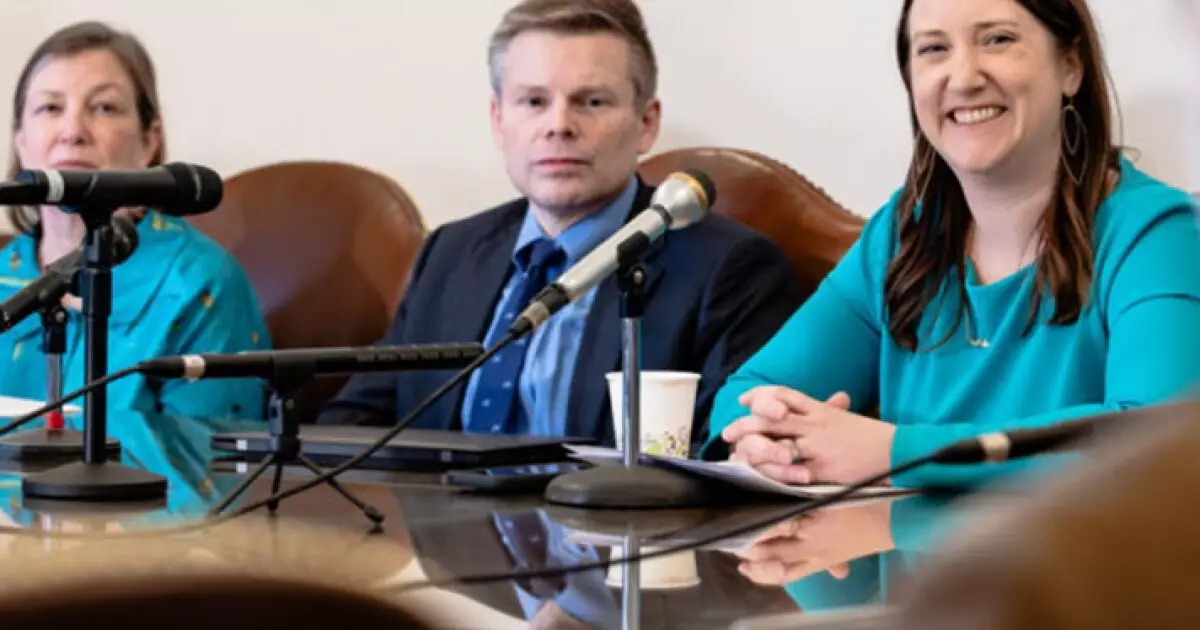In a move reminiscent of political chess played under a pervasive cloud of financial uncertainty, Washington state lawmakers emerged after a tumultuous session to approve a staggering $77.9 billion budget. The fiscal constraints of a $16 billion projected deficit loomed large, which was exacerbated by declining state revenue forecasts and anticipated cuts in federal support. However, the approved budget is not without its controversies, as massive tax increases and sweeping program cuts have left many citizens clamoring for accountability and clarity from their government.
Amid this political battleground, lawmakers have committed to bringing about $8.7 billion in tax increases across a four-year horizon while simultaneously endorsing $5.9 billion in program cuts. Critics of such a hefty tax burden will likely argue that this approach neglects sustainable fiscal practices, leaving future generations to grapple with the consequences of an overreliance on taxing the public. If a well-intentioned budget proposes a river of new taxes but cuts essential services, we may find ourselves mired deeper into the deficit quagmire.
The Perilous Tightrope of Balancing Needs and Wants
As if navigating a minefield, Governor Bob Ferguson, freshly minted in his role, faces a 20-day countdown to sign off on this contentious budget. While the budget steers clear of immediate furloughs and maintains the rainy-day fund, the representations of fiscal conservatism come into question when one considers the level of tax increases and the breadth of program cuts. Lawmakers assert that prioritizing essential services like education with around $975 million earmarked reflects a commitment to societal welfare. Yet, at what cost? Programs vital to drug rehabilitation and child support stand on the chopping block, compounding the irony of a government claiming to work for those it is squeezing the hardest.
For a state inhabited by a populace that prides itself on progressive values, this fiscal landscape feels more like an exercise of frustration than a productive roadmap. The substantial gas tax increase and Tesla levies signal a trend where the green initiatives championed by the left are used as cash cows instead of being genuinely sustainable policies benefiting all constituents.
The Coalition of Ambivalence
Even within the Democratic Party ranks, there exists palpable tension between party leaders and the governor. Reports of Ferguson’s influence on the final budget embody a pragmatic approach to governance, yet they fail to mask the deep-seated dissent about taxation and expenditure. Senate Majority Leader Jamie Pedersen’s insistence that conversations have been generally “positive” feels naive when set against the reality that the wealth tax proposal was shelved, a significant ideological defeat for the progressive wing of the party.
Though Democrats control both legislative chambers, they exhibit a willingness to sacrifice their ideals for immediate financial stability. The reality is stark: lawmakers, rather than standing firm against controversial tax measures, are facilitating a shift toward prioritizing revenue over citizen welfare. Citizens could deserve better representation that pushes for efficacy without punishing the affective needs of communities.
The Shifting Sands of Taxation
The inclusion of considerable tax hikes has sparked fervent criticism from the right, with voices like Republican Rep. Travis Couture highlighting an unparalleled increase in tax burdens. Couture’s remarks aptly position the budget as not just insufficiently conservative in fiscal governance but as fundamentally detrimental to individual freedoms of wealth and income. In a climate where every dollar taxes its constituents, the question arises—how much can the average citizen bear before pushing back against a tax-hungry government?
The ongoing debate surrounding revenues and what constitutes suitable tax measures also raises questions about the future trajectory of fiscal policy in Washington. The cancellation of a previous wealth tax proposal and the pushback on a $21 billion tax plan showcases a possible reevaluation of strategies that may feel unsustainable, yet still, these measures leave a bitter taste in the mouth of those advocating for significantly lower taxes.
Transitional Politics and Lamentable Projections
While Ferguson appropriately criticized the initial fiscal plans as overly ambitious, his willingness to inch closer to consensus through at least some necessary price increases may betray the very essence of center-right governance. By endorsing the budget while abdicating full ownership, he finds himself on a tightrope spin between the need for pragmatic governance and the desire for more conservative fiscal policies. The Aaa and AA-plus ratings signal a veneer of health in Washington’s financial ethos, but beneath, there is a gnawing sense that without addressing structural issues, we may be setting ourselves up for a catastrophic fiscal downturn.
As the winds of politics swirl inexorably onward, expectations for future budgeting and fiscal governance raise a critical question: Will the state actualize an authentic commitment to enhancing individual freedoms or will it entrench itself into an endless cycle of taxation? The irony could be debilitating. The condition of public promise and future freedom is dangled precariously against the backdrop of budgetary truces.


Leave a Reply